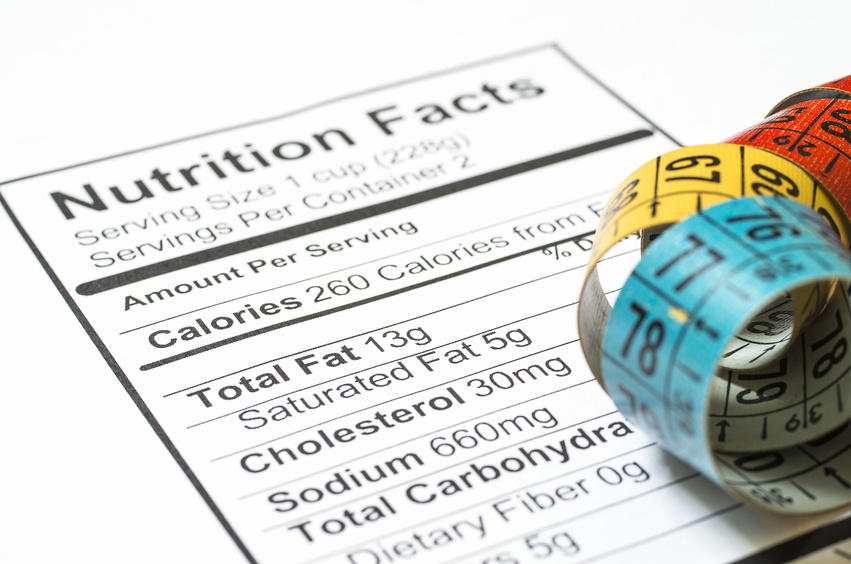
By now you know that there is so much more to weight loss and health than just calories. In fact, calories play FAR less of a role than we ever thought. Of course, you can lose weight by strict calorie counting, but eventually, your hormones become unbalanced leading to increased hunger, decreased satiety, and stubborn plateaus. The old statement “calories in, calories out” is just no longer believed by educated wellness professionals. So why, after all this time are we talking about calories? Because everyone needs a refresher from time to time, and it is just a good idea to stay up on current research (and facts are always nice to have when you’re trying to convince your friends that there is a much simpler way : ). Here are some facts that you might already know…..and there may be some that you didn’t……
- Calories from naturally occurring fiber don’t always count. Now we are not talking about Fiber one bars or any other “fiber added” edible product, but the intact insoluble fiber in fruits and vegetables actually does not get absorbed by the body, so the calories from that fiber don’t count. Aside from doing a mathematical equation every time you eat on every single item, there is really no way to tell exactly how many calories come from fiber in your foods so you can subtract it from your total calorie count. Bottom line, eat more fiber, but don’t waste too much time trying to figure out how many you actually absorb.
- The fitter you become, the less calories you burn. So many people start on a weight loss journey, carefully setting their food logging app to a specific calorie limit only to become frustrated when the scale that was moving so beautifully suddenly STOPS, or they spend hours and hours on cardio machines until they reach a certain “calorie burn,” only to run into the same frustrating plateau. The bottom line is that the fitter you become, the more efficient your body is at movement, which means you need less energy (calories) to do the same activity. Long story short, exercising off calories is a short term fix and will become frustrating in the end.
- Your basal metabolic rate is ALWAYS changing. There are great tests out there that practitioners will often do to pinpoint someone’s metabolic rate, telling them that they will lose weight if they eat that many calories or less. The real story is that the “metabolism” is in constant fluctuation. It increases after exercise and with increased muscle mass and changes monthly with a woman’s hormonal cycle. There is no way to really know what someone’s metabolic rate is on a daily basis so that they can eat the perfect amount of calories to lose weight. Staying within a healthy calorie range is enough for most people.
- Dropping calories too low will alter the body’s metabolism in the wrong direction. There are still many people out there who think that eating less is still better. That is not the case at all. It is true that if you are overeating, ingesting less is certainly part of weight loss and healthier eating, but dropping calories too low will eventually cause the metabolic rate to slow to the point that even the slightest indulgence will cause weight gain. Eating enough is a far more common problem than most people think.
- The numbers on nutrition labels are allowed to be inaccurate up to 20%!!! If you are relying on counting calories on packaged foods alone, you could be off by as much as 1000 calories by the end of the day. What a gamble!
So based on all of that, I hope I have convinced you that while calories matter, they are definitely not the most important factor for weight loss. Remembering how your body was designed to work, and working with it is by far the simplest way to avoid ever counting calories again! What to do instead??
- Feed muscle starve fat. Protein feeds muscle. Starches raise insulin and feed fat storage. Eating “slow burning” carbs from vegetables and eating lean protein often is the easiest way to do this.
- Keep calories at a reasonable range. 1200 is the absolute best minimum for calories. The rest is really a detective game. If you lean toward the higher side and can still lose weight on that, then you have more wiggle room if you hit a plateau.
- Timing matters! Total calories aside, eating late at night gets in the way of what your body is designed to do….BURN FAT WHILE YOU SLEEP! Your body’s best potential to burn fat is through 8 hours of fasting while you sleep. One of the most common weight loss frustrations I see in my practice is people who are carefully counting every calorie, carbohydrate, and fat gram, but are stalled because they are eating late at night. I am always amazed at what a difference this one change makes in their weight loss goals.
- Stop stressing about calories. Stress causes weight gain anyway.
- Treat your plate like a pie. If you look at your plate for about 50% veggies, 35% protein, and 15% healthy fat, you will easily stay on track without ever counting anything.

STEP(S) FOR THIS WEEK:
- Take a hike. Read a book. Hug your children. Do something meaningful besides counting calories. Look at the simple 5 steps above to structure your eating to support fat loss instead of dependence on calorie counting. Long term, it is a much better solution. If you know of a frustrated calorie counting friend, forward this to them. Spread the word. There is a better way.